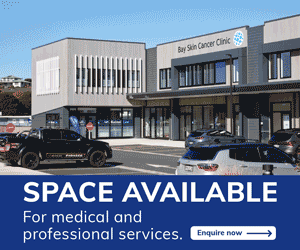New Zealand’s third annual National Coworking Day has just been celebrated around the country, with coworking spaces opening their doors to showcase what they offer.
The curious were able to tour the coworking spaces and experience first-hand what these collaborative, knowledge-sharing working environments are all about.
A recent Bayleys Research report shows that Auckland’s coworking office sector has continued its state of expansion – growing in size, membership and occupancy throughout last year, with no sign of letting up.
Auckland’s coworking presence grew by around 10,000sqm over 2018 to a total footprint of 39,500sqm which represents an estimated 1.2 percent of the total office market – below the Asia-Pacific average of 2.1 percent
However, there’s an additional 18,000sqm of CBD stock in the pipeline and circa 20,000sqm in the wider Auckland pipeline with roughly half due for completion over the next 12 months.
Elsewhere around the country – particularly in Wellington and Christchurch – coworking hubs are finding favour with a segment of the market looking for fluid, and adaptable working environments.
Monthly dedicated/flexi desk rates have remained largely unchanged from the last Bayleys Research survey, with current rates ranging from $499 to $1499 for larger operators and $400 to $900 for smaller operators.
Casual rates typically range between $150 and $499 per month.
Upward trajectory
Globally, the coworking phenomenon continues on an upward trajectory, with an estimated 35,000 flexible workspaces providing 48 million sqm of flexible work environment for those committed to working in a different way.
Many of these coworking spaces are being purpose-built as part of new commercial and mixed-use developments, while others are being retro-fitted into existing commercial buildings close to transport networks and other amenities.
Bayleys Auckland director of commercial real estate, Lloyd Budd says increasingly, bigger corporates are utilising co-working space for their staff which is “normalising” the cowork concept and making it an extension of the traditional workplace.
“There was a perception that coworking was just for freelancers, self-employed operators, entrepreneurs or start-ups looking to collaborate with like-minded people, share ideas, services and reduce rental costs,” says Budd.
“However, the concept has evolved and has attracted many in the corporate sector who want to tap into the start-up culture to win new talent and new clients, and also serves remote or travelling workers well.”
Corporate entities are also broadening their thinking and engaging workers outside of the core centres then facilitating work from a coworking hub which minimises relocation costs and allows the workers to be part of a safe, professional and social working environment with built-in flexibility and lower desk/operating costs.
The coworking spaces that are emerging in New Zealand are well-spec’d with fast internet speeds, coffee machines, break-out meeting rooms, boardrooms, and well-planned networking calendars.
A cowork hub removes the isolation factor from remote working and establishes a sense of community for the “residents” choosing to be part of these innovative and flexible work spaces.
If you’re looking to restructure your business model to allow for more fluidity and to broaden your potential worker base, then adopting a coworking strand to your operation could be the answer.
www.bayleys.co.nz/insights


















